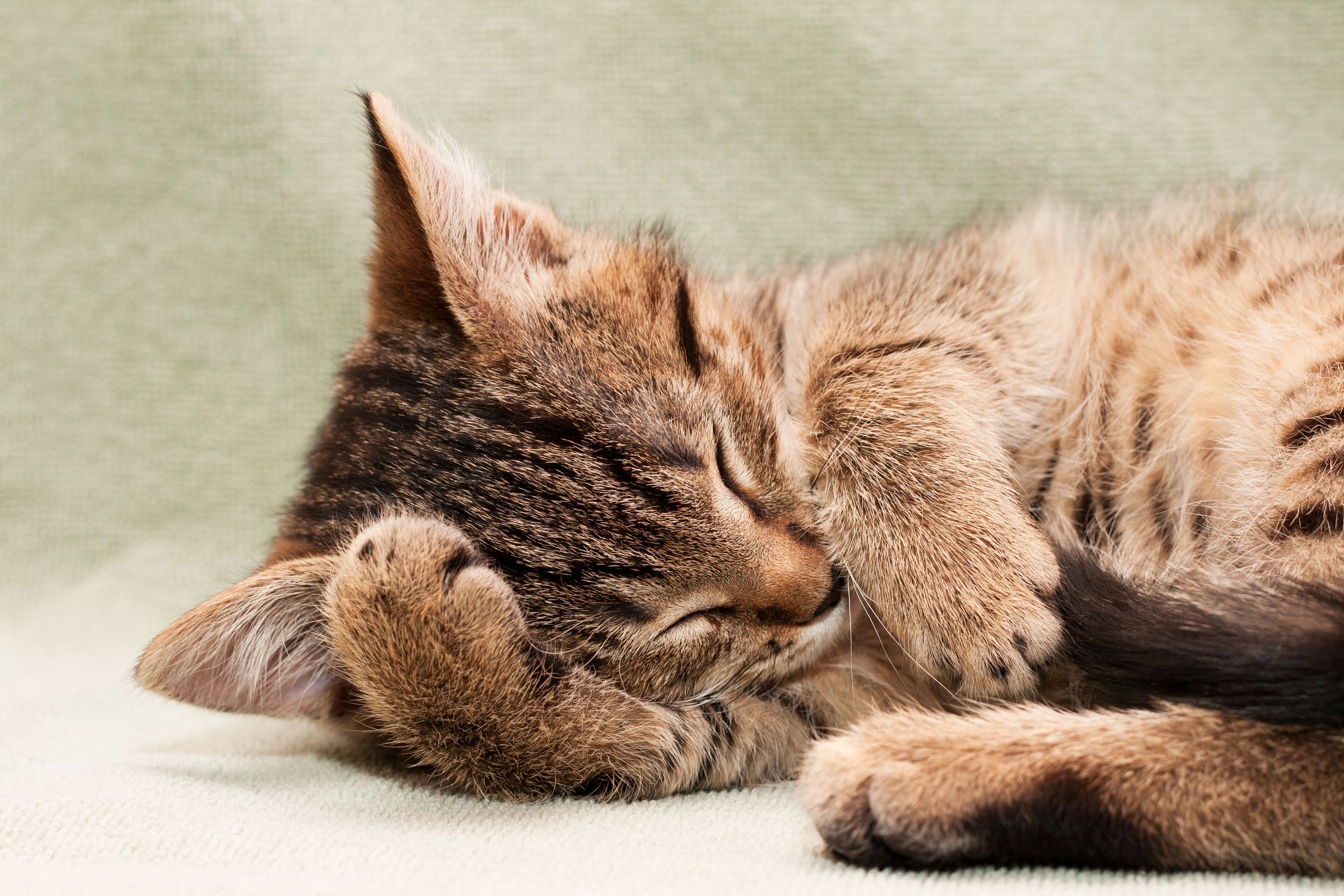Does My Cat Have Dental Issues?
If you hate going to the dentist, imagine how much your cat hates getting its teeth cleaned. But that kind of catty attitude (cattitude?) can cause problems.
According to Cornell University College of Veterinary Medicine, nearly 90% of cats over 5 years of age will have some type of dental problem. And it’s estimated that 80% of more of pets in the U.S. will experience some form of gum disease before age three.
 Cats, though, are known for their ability to hide pain, making it hard for us pet owners to really seek out and respond to the symptoms of different dental diseases, which can sometimes lead to your cat getting its teeth pulled – or to other health issues.
Cats, though, are known for their ability to hide pain, making it hard for us pet owners to really seek out and respond to the symptoms of different dental diseases, which can sometimes lead to your cat getting its teeth pulled – or to other health issues.
If you know what signs to look for and take your cat to the vet for regular checkups, you could avoid many of those potential (and common) dental issues.
Causes of Feline Dental Disease
Like humans, cats have two sets of teeth throughout their lives. The first set is known as “milk teeth,” and by the time a kitten is six months old, those are replaced by a permanent set of teeth. Cats not only use their teeth to tear and chew their food, but also for self-defense.
Some feline dental diseases are genetic and more prevalent in certain breeds; however, tartar buildup and bacteria are the root cause of most dental issues.
Periodontal disease is caused by enzymes and bacteria found in the hardened layers of plaque on the teeth. An estimated 85% of cats over the age of six have periodontal disease. When the gums become inflamed, the cat develops gingivitis, and in advanced periodontal disease, removing the tooth is usually recommended.
There are other issues that are not caused by plaque, such as feline odontoclastic resorptive lesions (FORL). Cornell estimates that nearly 50 percent of cats are affected by this disease that causes lesions in the bone tissue. In many cases, it is genetic or due to a poor immune response. When the tissue cannot repair itself, there is irreparable damage to the tooth, and it needs to be removed. If caught early, you can prevent some pain by removing the tooth before the bone deteriorates to the point of nerve exposure.
Feline gingivitis/stomatitis syndrome (FGS) is rare and only occurs in about one in 100 cats. It is typically treated by antibiotics and steroid therapy. FGS usually leads to the extraction of most or all of the teeth. Even though FGS is rare, regular check-ups for your cat are important since the vet can detect early signs of any dental issue and take the best course of action.
Symptoms
Because cats are adept at hiding pain, it’s important to take your cat in for regular vet visits. It’s also important to look for some key signs. Dr. Michael Carmichael, DVM explains why cats do not show pain: “Cats are descended from wild animals, and it’s very deep in them that if they show weakness, they might become prey themselves.”
Many cats will stop eating, especially hard food, if there’s a problem with their teeth or mouth. However, lack of appetite can be a sign of other issues. Always call your vet if your cat is not eating normally. Bad breath, swollen gums, and pawing at the mouth are also signs that your cat is experiencing dental issues. If your cat is demonstrating any abnormal behavior, it’s always a good idea to schedule an appointment with your veterinarian.
Preventing Feline Dental Disease
 There are many ways to prevent feline dental problems caused by plaque build-up. While it may not be the best way to spend a Friday night, brushing your cat’s teeth is one way to prevent most issues caused by bacteria. Ask your vet to show you easy ways to make it happen.
There are many ways to prevent feline dental problems caused by plaque build-up. While it may not be the best way to spend a Friday night, brushing your cat’s teeth is one way to prevent most issues caused by bacteria. Ask your vet to show you easy ways to make it happen.
There are also special products, such as chicken flavored toothpaste and periodontal support products, that can make it easier to keep your cat’s teeth and gums healthy between vet visits. Your vet may recommend a cleaning.
Keep in mind that as a cat ages, cleanings are more difficult to perform since the vet will have to give the cat anesthesia. Some vets will not provide cleanings for cats over a certain age.
Also, hard cat foods designed to help clean tartar simply because of the size of the kibble are not as effective as a real cleaning. Cats tend to eat without chewing due to their instincts to eat prey quickly. In addition to poor results for dental care, many hard cat foods can lead to digestive issues. Most vets now recommend wet food over dry food as a rule. Ask your vet for more details about dental products before purchasing them.

